|
Johnson grew up on a farm in the tiny and
rather remote community of Stonewall, Texas, in a condition of constant
poverty and humble social circumstances, although his family had a
somewhat impressive history dating back to the early days of Texas. In
fact, the nearest town in the region, Johnson City, was named after one
of his relatives. The young Lyndon attended high school in Johnson
City, and eventually entered Southwest Texas State Teachers College in
San Marcos, where he developed a taste for politics and ended up as
editor of the school newspaper. He took time off during his studies to
teach a full school-year to Hispanic-American children, which touched
deeply an old nerve in Johnson, one that never failed to make him
greatly concerned about the problems that people face living in utter
poverty – something he personally could identify with closely.
Graduating in 1930, he found a position
teaching high school public speaking in Houston and also got involved
in Richard Kleberg's Congressional campaign. With Kleberg's victory in
late 1931, Johnson followed him to Washington, D.C., where he found
himself by natural impulse organizing Congressional aides into
something of a political fellowship. Eventually that fellowship would
include staff members of newly elected President Roosevelt. But it
would also grow to include even a direct friendship with Vice President
John Nance Garner and powerful Speaker of the House Sam Rayburn, both
Texans. In fact, Johnson's relationship with Rayburn would grow over
the years, forming a strong political bond between the two.
In 1934 he married Claudia ("Lady Bird")
Taylor of Texas, whose mother (of aristocratic Alabama ancestry) died
when Ladybird was only five. Her father was a strong-willed Alabama
sharecropper who managed to move to Texas and put together a fortune,
coming to own 15,000 acres of cotton and two general stores. Growing
up, Lady Bird ventured back and forth between Texas and Alabama, but
eventually attended and graduated from the University of Texas, and
then headed on to Washington, D.C., where she met Johnson, marrying him
only ten weeks later.
In 1935 he returned to Texas to became
head of the Texas National Youth Administration, a big part of
Roosevelt's New Deal, given the task of setting up government-sponsored
jobs and job-training for unemployed Texas youth. This was a key
component of Johnson's understanding of the proper role of government,
one that would stay with him during the years ahead as he entered more
fully into political life.
In 1937, financed heavily by his wife, a very ambitious Johnson ran
successfully in a special Congressional election, and would continue to
serve in the U.S. House of Representatives during the next dozen years,
most importantly during World War Two, proving to be a key supporter of
Roosevelt's legislative agenda. He joined the U.S. Naval Reserve in
1940, was commissioned as a Lieutenant Commander, and when America
entered the war in December of 1941, he was called to active duty. He
wanted a combat appointment but instead was put to use by Roosevelt
during the early part of the war as an investigator into general
conditions of the U.S. Navy in the Pacific, this leading him eventually
to be a chairman of a key subcommittee of the House Naval Affairs
Committee investigating navy contracts with America's manufacturers
(similar to Truman's role in the Senate investigating army contracts
during the same period).
After the war, in the 1948 national
election, Johnson ran for a U.S. Senate seat, gaining (very narrowly,
and very questionably) the Democratic Party nomination, and thus in the
Dixiecrat South (which included Texas) most assuredly the subsequent
election itself (Southerners at that time were still refusing to vote
Republicans to any office). Now in the Senate, Johnson was quick to
befriend the powerful Senator Richard Russell and also help create and
then lead a Senate subcommittee investigating government contracts with
the defense industry, very similar to the role he played in the House
of Representatives.
By 1951 he had gained the key position of
Senate Democratic Party Majority Whip. Then when in the 1952 elections
(which brought Eisenhower to the White House) the Republicans swept the
Democrats out of power in both houses of Congress, in the new Senate
political reshuffle in early 1953 Johnson was elected by fellow
Democrats as the new minority party leader. This made him the youngest
person ever to be elected to that powerful position (he was only
forty-four at the time). Then when in the 1954 elections the Democratic
Party regained the majority in the Senate, Johnson became the majority
party leader. This would make him not only one of the youngest but also
one of the most powerful leaders in Washington, D.C.
Johnson grew up in a family that had a
number of Baptist pastors in its recent genealogy on his mother's side
of the family, whereas his father had merely a distant relationship
with the world of religion, only occasionally attending the Disciples of
Christ (DOC, or just "Christian") Church in Johnson City. But it was in
this church that Johnson would grow up, a rather different sort of
denomination than the Southern Baptists and Methodists of the
camp-revival variety that dominated the local religious scene. The DOC
had been founded in the 1800s in an effort to create a Christian form
that adhered to no particular doctrinal or liturgical structure. And
this seemingly left its mark on Johnson, who in later years (really
only after he became president in late 1963) would find himself
comfortable in any of America's Christian denominations, even Catholic.
And he especially loved to find himself in the company of pastors, of
any variety. But actually, Johnson seemed to develop a preference for
the more liturgical (Catholic and Episcopalian) churches to attend,
although ultimately he could be wide-ranging in his choice of where he
would worship on any particular Sunday, sometimes even attending more
than one church on that same morning. Part of this was that he truly
felt at home within the broader spectrum of Christianity. But he also
liked to be out in the crowds (always hating to be alone). Of course
this never hurt his political status either. Also it kept him one step
ahead of the press, who naturally wanted the week's latest story on
where Johnson had attended church (he loved to keep the press guessing).
But clearly the one person who meant the
most to the president in the religion category was the evangelist Billy
Graham (whose contact with President Kennedy had been quite minimal).
Graham and Johnson became very close over the years of the Johnson
presidency. Graham was called on to speak at every one of the
presidential prayer breakfasts in those years, and Graham met
frequently with the president both in the White House and on Johnson's
Texas farm, to pray and offer comfort to a personal friend who was well
aware of the troubles his presidency had come to encounter. Johnson
even asked him in 1964 as to who he thought would make the best running
mate, to which Graham wisely declined to give an answer! Graham stayed
with Johnson the president's last night at the White House, and
eventually would be called on to conduct Johnson's funeral service
(1973). But very little of this close relationship was known outside
the inner Johnson social-political circle.
Johnson never saw the need to personally
inspire, through his own spiritual qualities, a "Christian America." He
did not usually talk about his religion publicly, or bring religion
into his public arena. Although he himself personally was a fairly
strong Christian, and found himself in personal prayer often over his
work, his public working-world was strictly Secular, and would remain
that way, even through all the difficulties he would face in trying to
lead the nation.
Johnson carefully researched every person
he would have to work with in Washington, finding their strengths and
weaknesses, their positions on various issues. Indeed, he was
well-known for his ability to go to work on his political colleagues,
towering over them hugely (he was a big man) in personal face-to-face
discussions, literally so, only an inch or two separating his face from
theirs as he pressed his views upon his intimidated victims.
He was very sensitive to the blemish of
poverty still afflicting the supposedly prosperous nation. Very
importantly in how he viewed this issue, he had come into the world of
politics as a young man deeply committed to Roosevelt's New Deal
program, and had a strongly ingrained sense that the government in
Washington was the best source of solid political, economic and social
reform for the nation – despite whatever the Constitution had to say on
these matters.
Also, as a Southerner, personally stung
by the way fellow Southerners had dug in their heels against Black
civil rights, he was by no means convinced that a mere appeal to the
American conscience was sufficient to get Americans to do the right
thing. Thus to Johnson it seemed to make more sense to him, on a number
of different political fronts, that real reform had to come to America
by way of a strong central authority, namely the Washington government
that Johnson had come to know quite well.
Besides, he was well-aware of the fact
that he lacked the personal qualities that could charm the American
people to action like Kennedy. He did not have a charismatic
personality that could move the public like King. No, he was a
behind-the-scenes political maneuverer – a very effective one at that.
He could get things done in Washington that not even a Kennedy or a
King could achieve, because of the huge amount of personal political
leverage he had developed in dealing with the other members of Congress
as Senate minority and then majority leader.
Johnson was also one very impressed with
professional credentials, ones that distinguished the experts of
Washington's powerful political circles from the common folk back home.
He was very definitely a deeply committed "Washington insider," as few
U.S. presidents before him had been.
Thus he would eventually come to put
forward his Great Society idea, a set of government programs run out of
Washington by political professionals, which he felt was the most
effective way to bring America to perfection. To Johnson's way of
thinking, professional economists, public administrators, lawyers,
etc., brought to Washington to engage in their professional work and
duties, seemed by far to be the best way to get the job done of
perfecting America.
So it was that Johnson pursued American
politics not along the lines of great idealistic challenges to equally
idealistic (and socially self-motivated) Americans, as Kennedy had, but
more in terms of an aggressive out of sight herding forward of the
Washington congressional and executive bureaucratic machinery. He
relentlessly pushed forward his political program of social reforms
through this Washington political machine – expanding it to rather
colossal proportions in the process.
Under Johnson, Washington D.C. transformed itself into a great imperial
metropolis – also improved greatly in appearance through his wife Lady
Bird's huge efforts to make the capital appear indeed to be just such
an imperial metropolis.
|

 The
American presidency under Johnson ... not quite Camelot!
The
American presidency under Johnson ... not quite Camelot!
 The making of Lyndon Baines Johnson (LBJ)
The making of Lyndon Baines Johnson (LBJ) The
civil rights movement gains steam
The
civil rights movement gains steam Johnson's "Great Society" program – May 1964
Johnson's "Great Society" program – May 1964
 American politics takes a left turn under Johnson
American politics takes a left turn under Johnson The continuing attempt to protect religion fromSecular-Judicial regulation
The continuing attempt to protect religion fromSecular-Judicial regulation Race relations worsen
Race relations worsen Affirmative action also for women and Hispanics as suffering "minorities"
Affirmative action also for women and Hispanics as suffering "minorities" The growth of the Federal state ... and the Federal debt
The growth of the Federal state ... and the Federal debt 





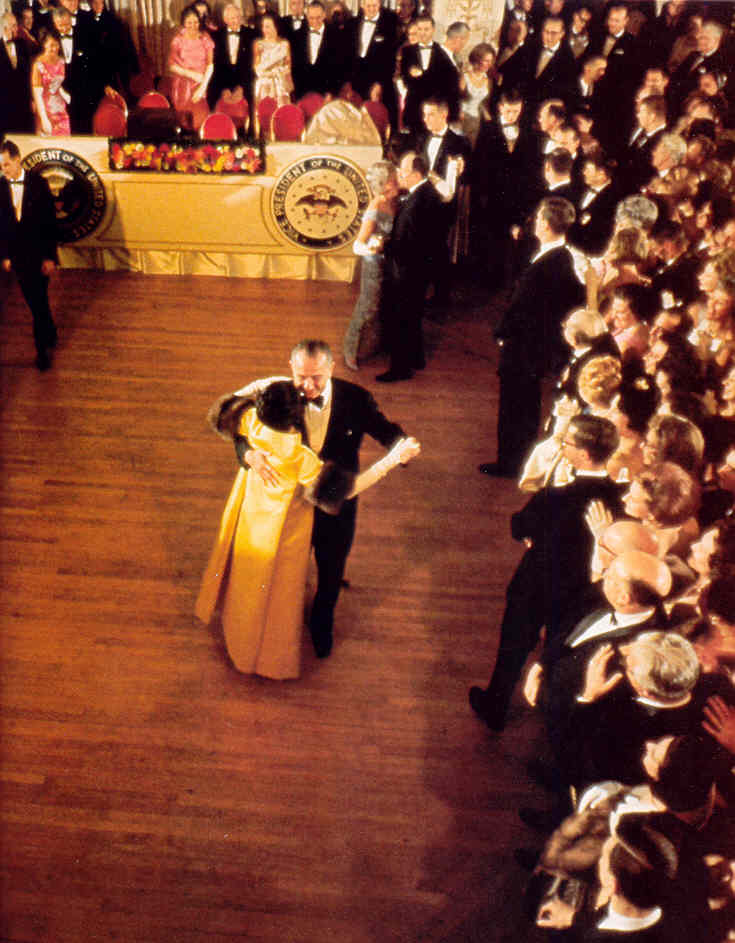
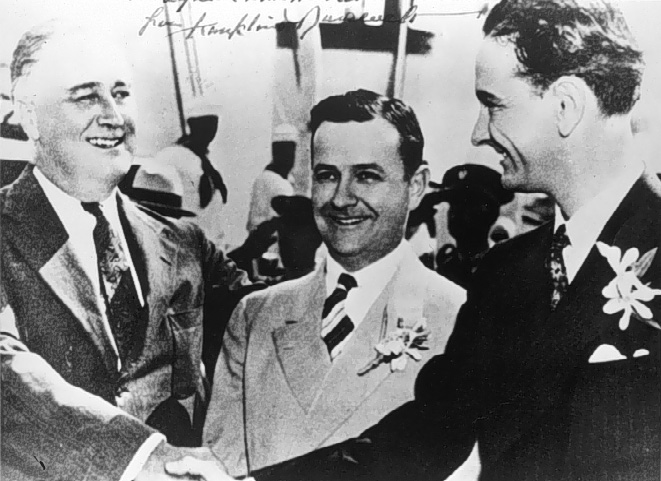
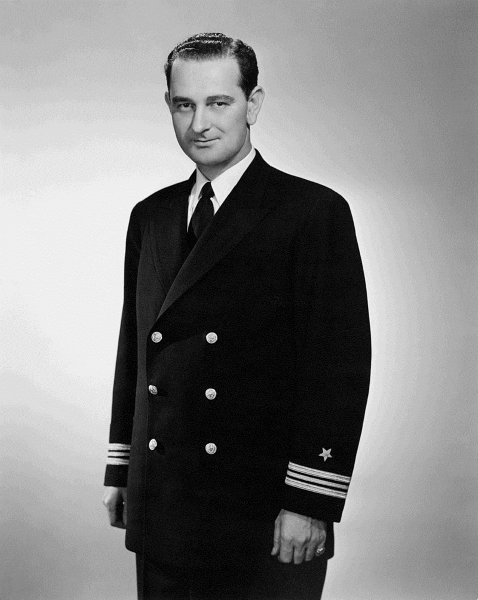
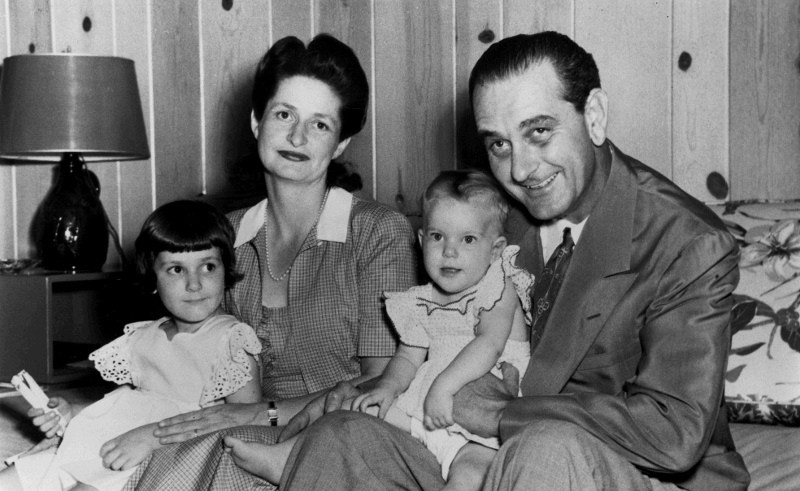
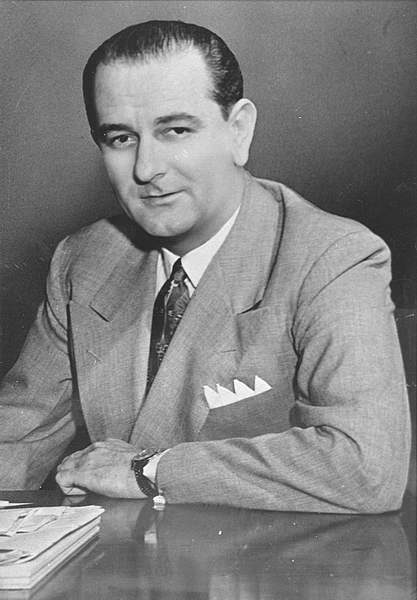
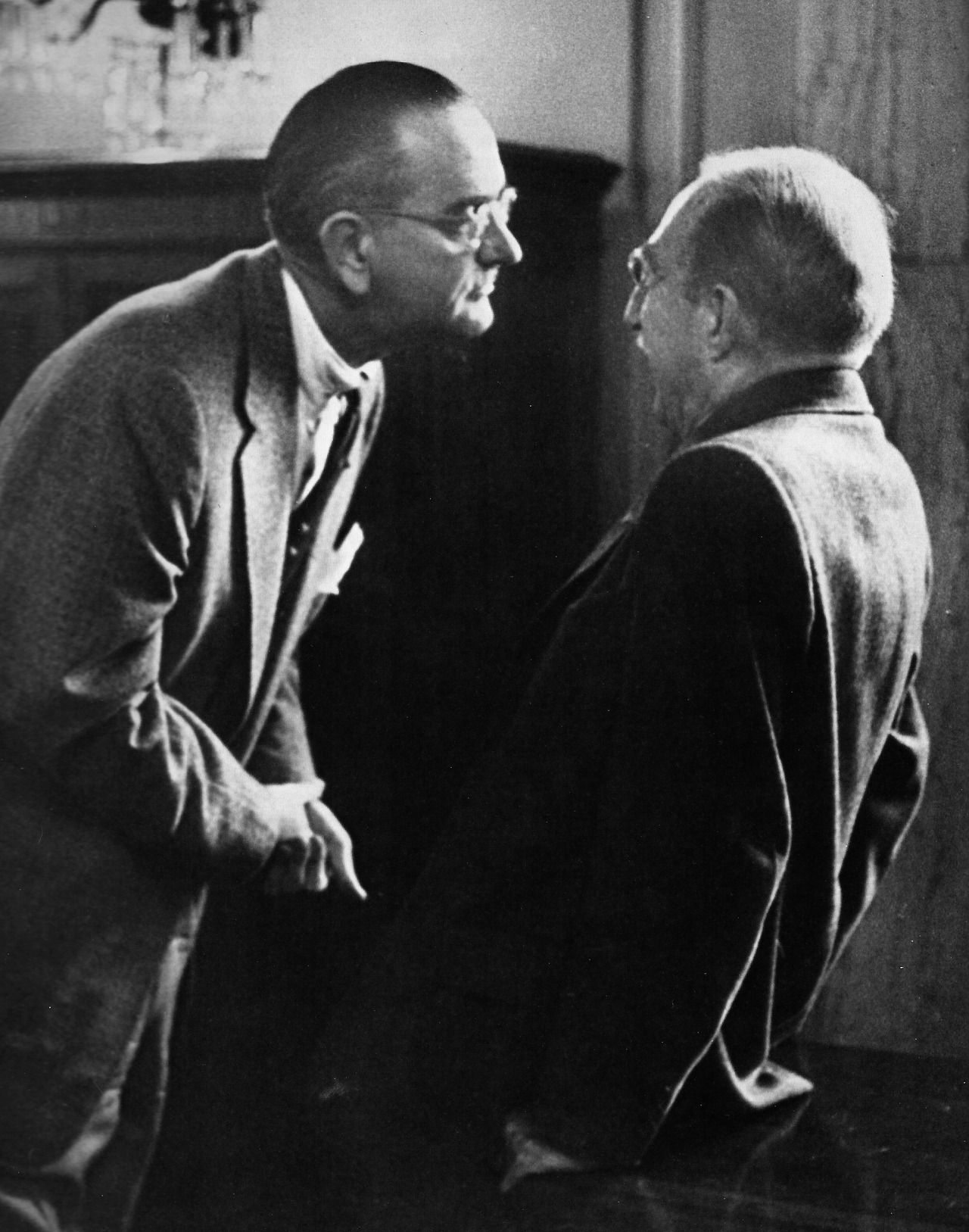
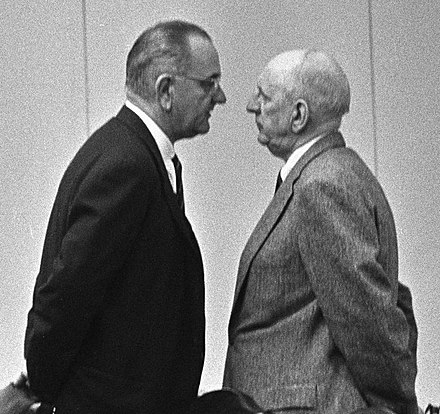
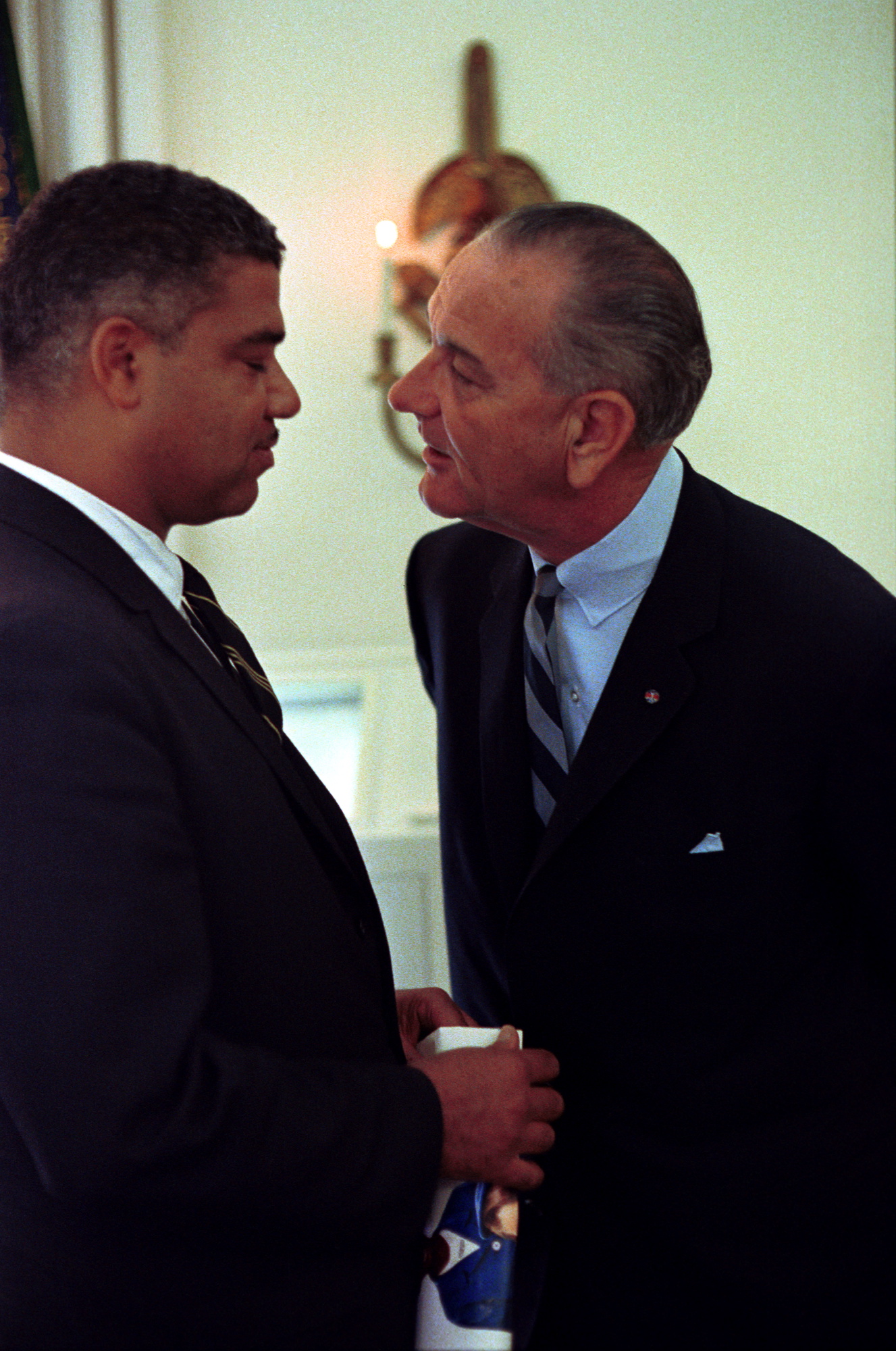
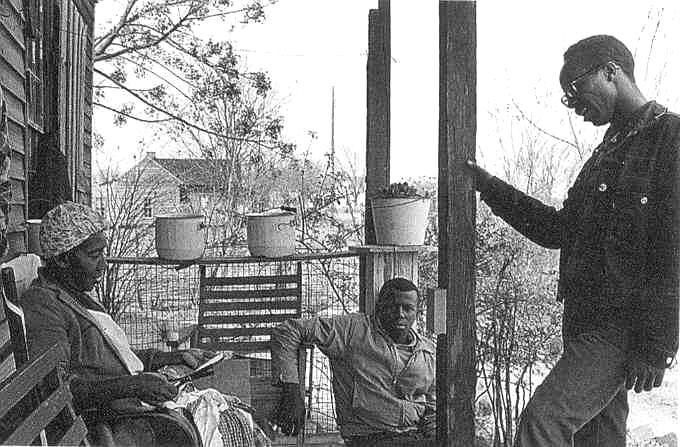
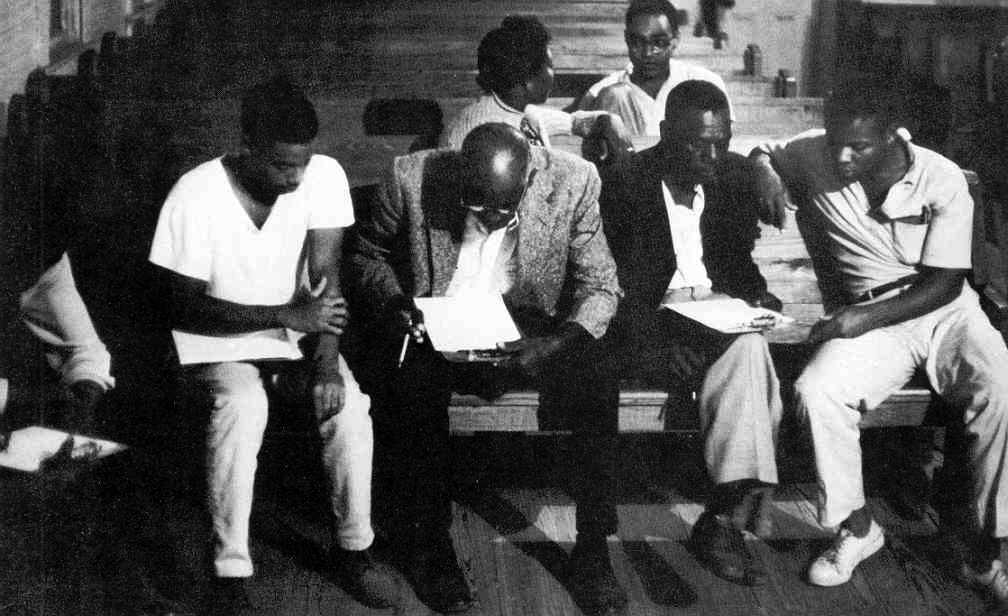
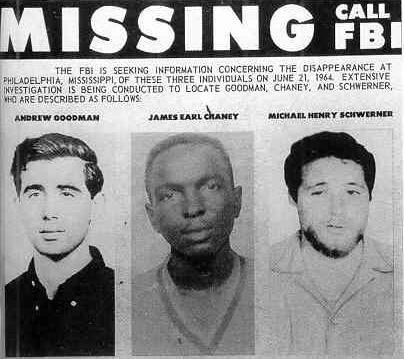
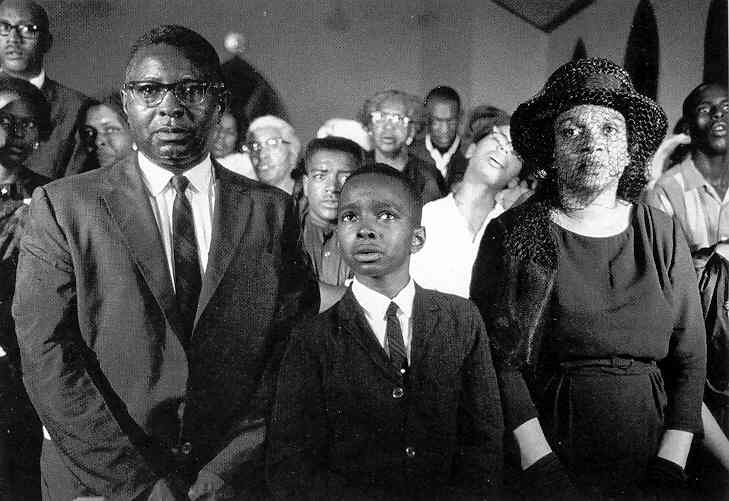
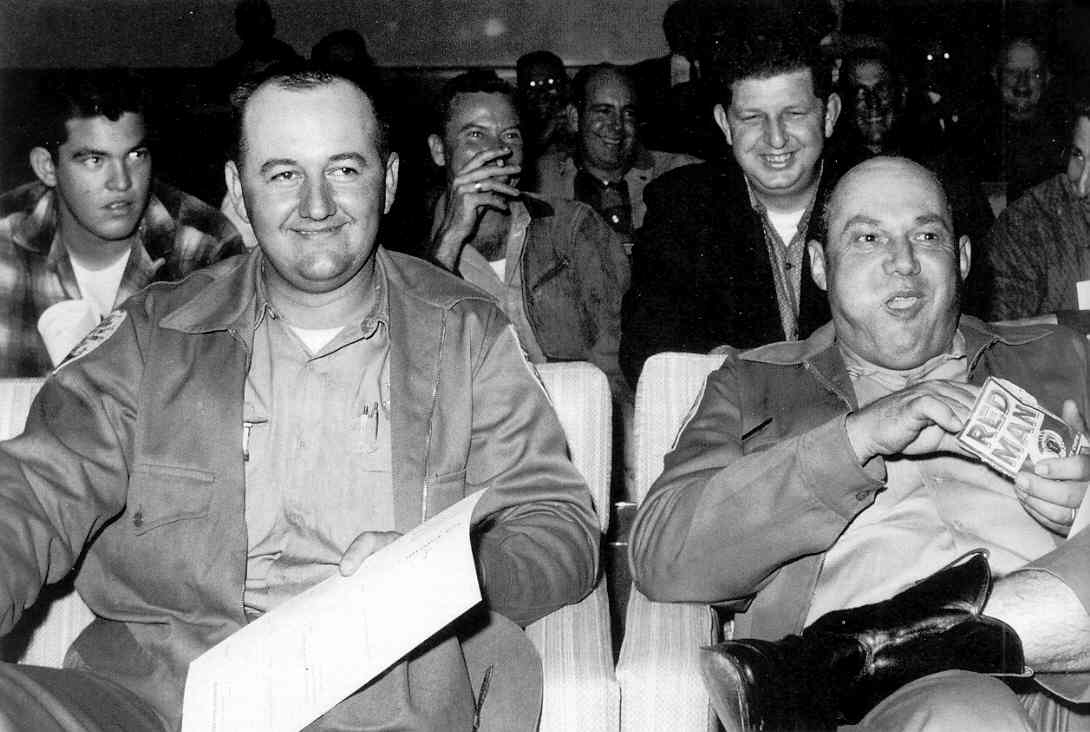
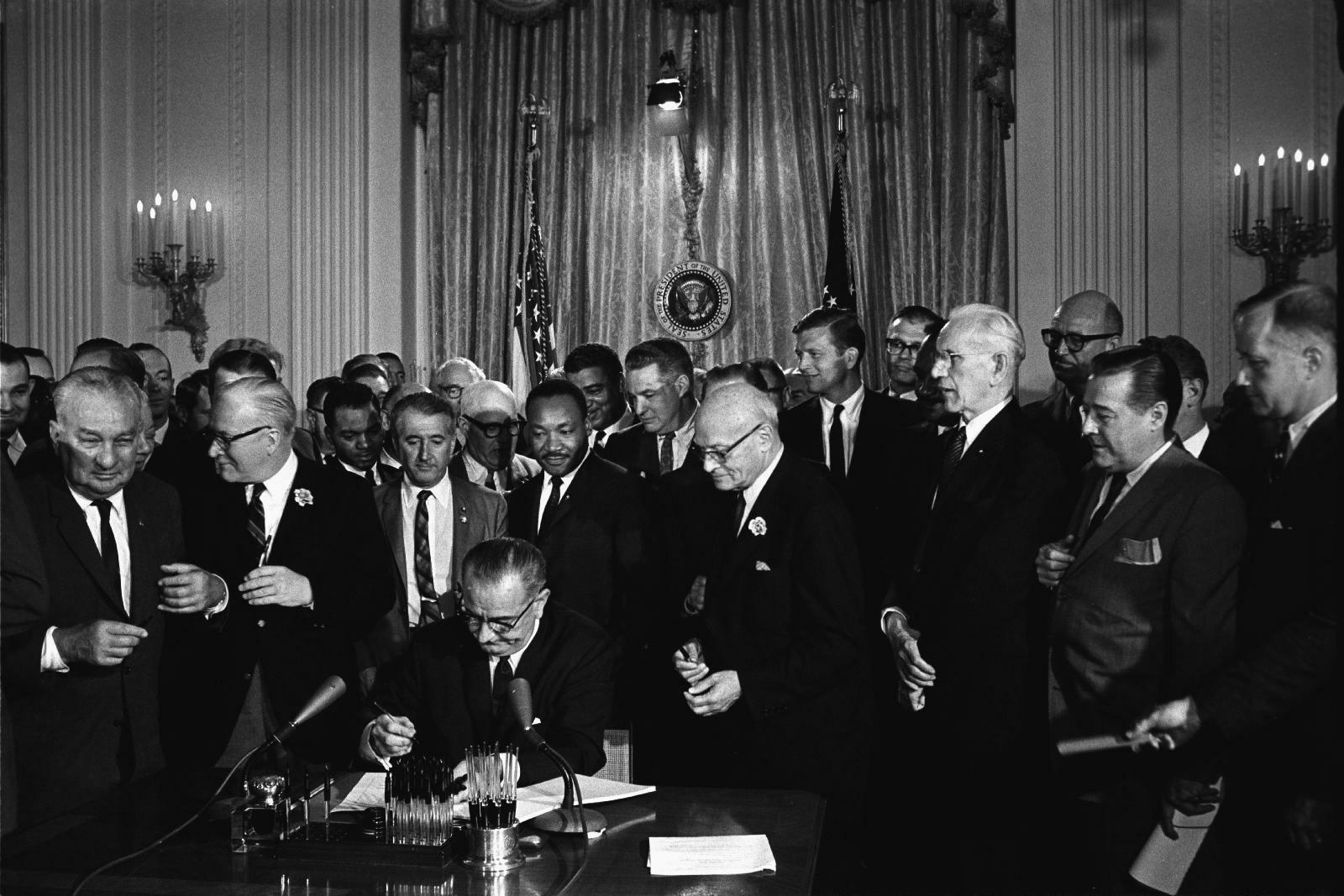
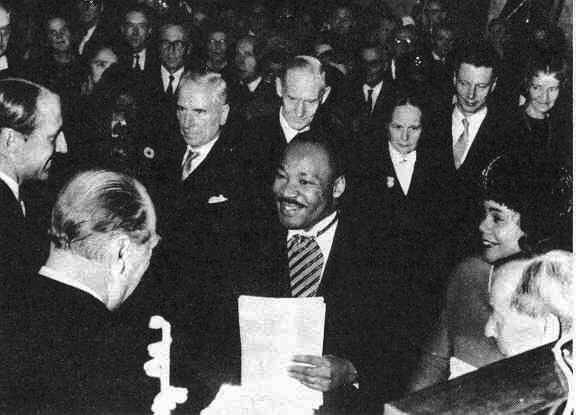
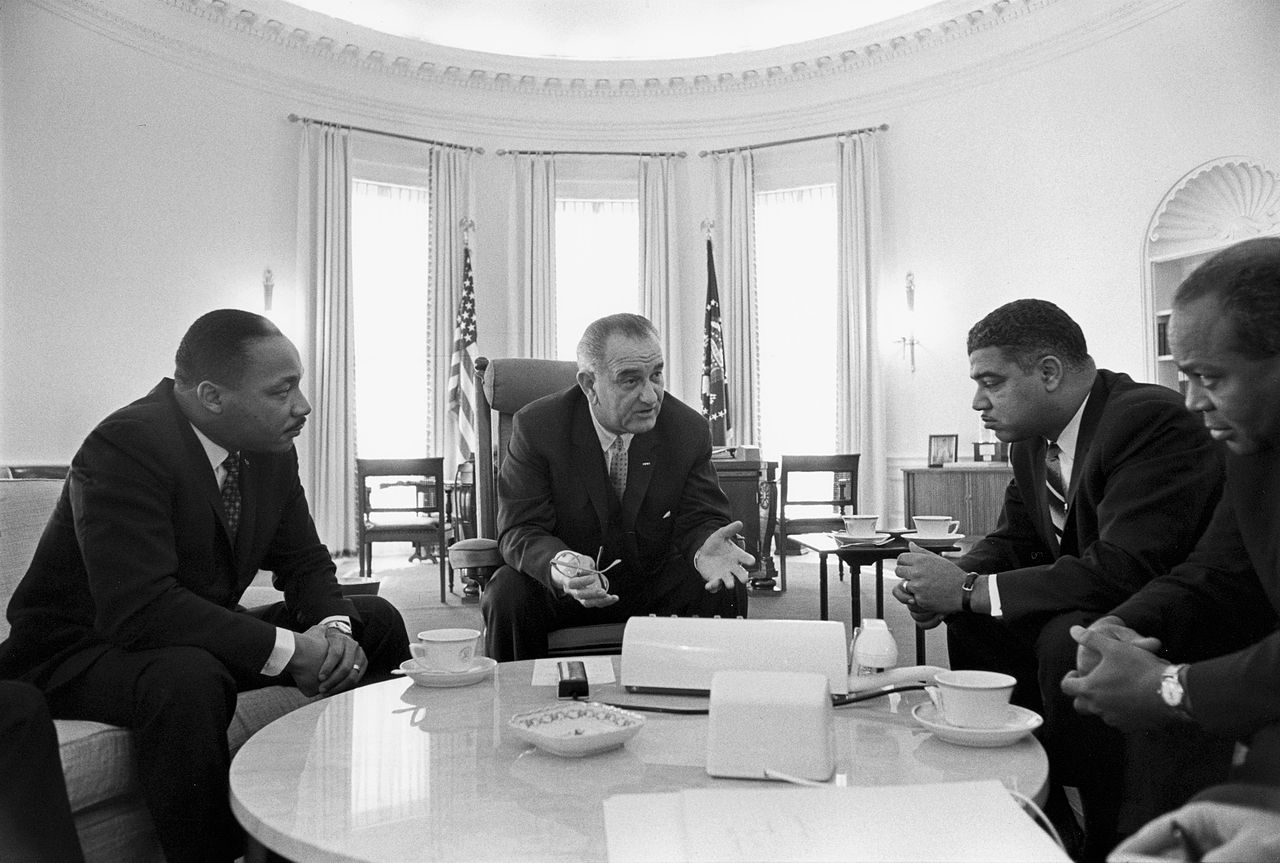
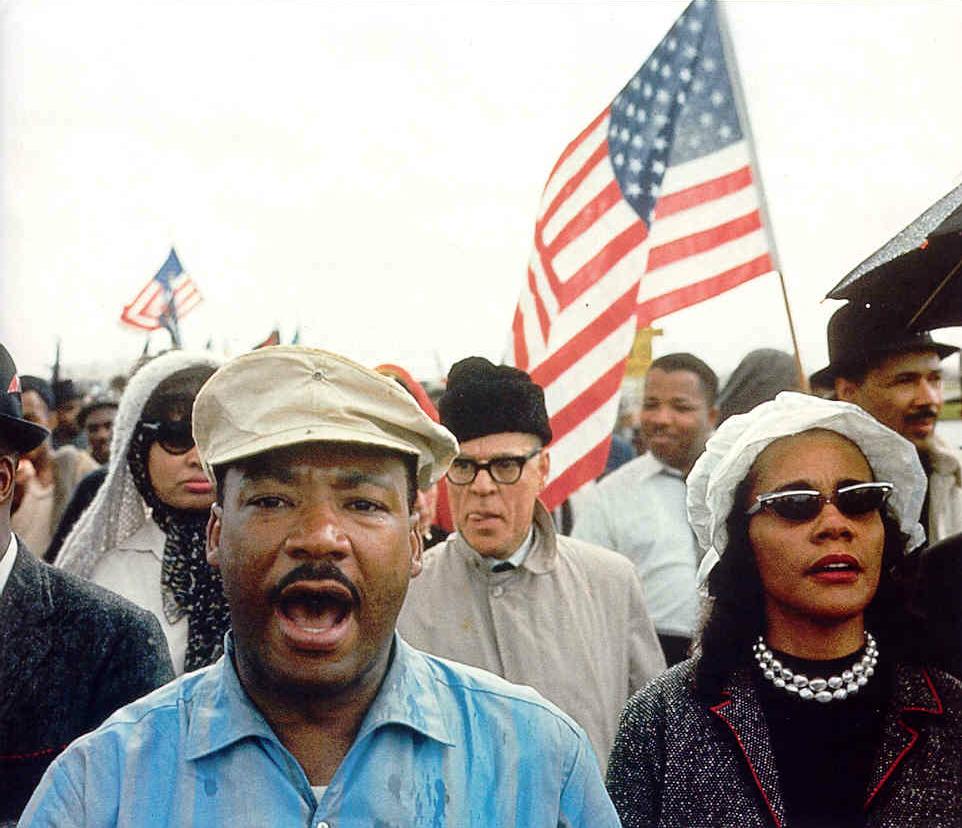
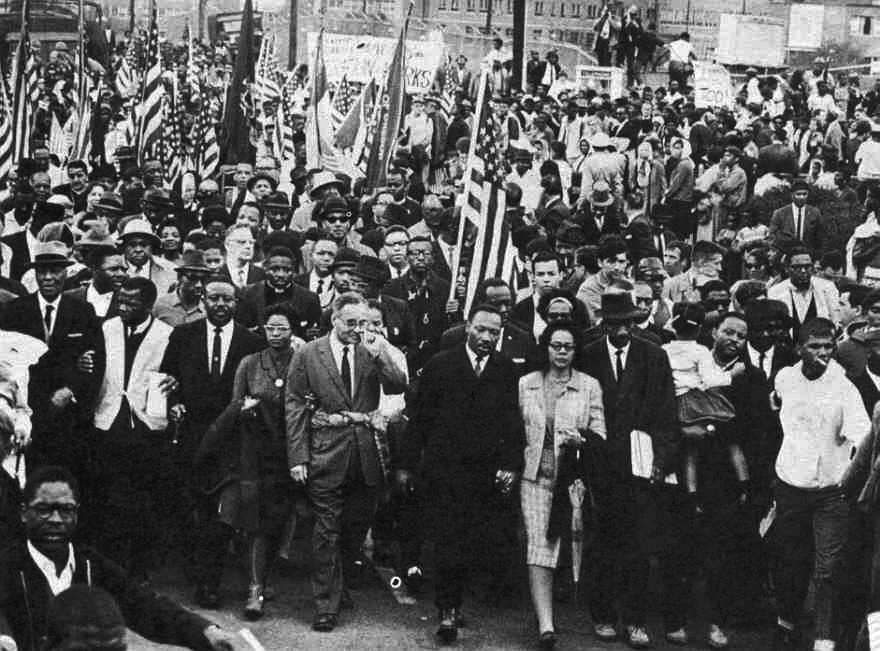
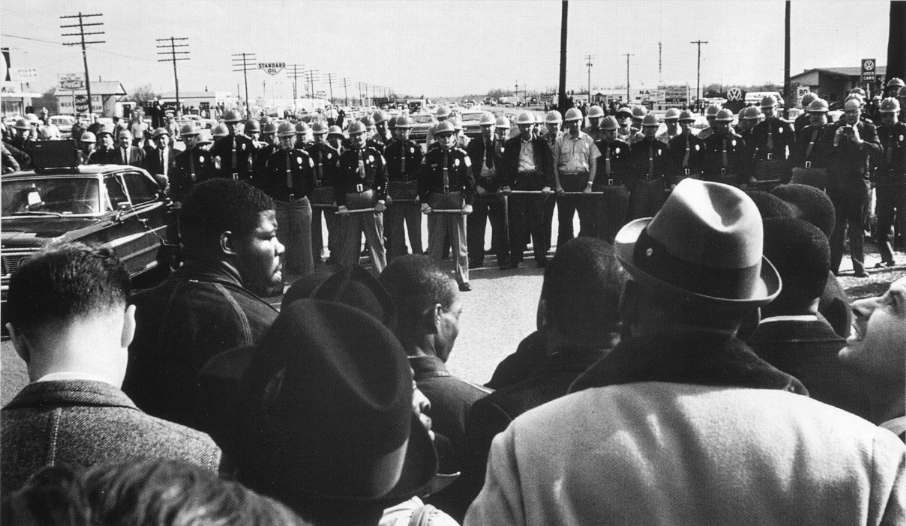
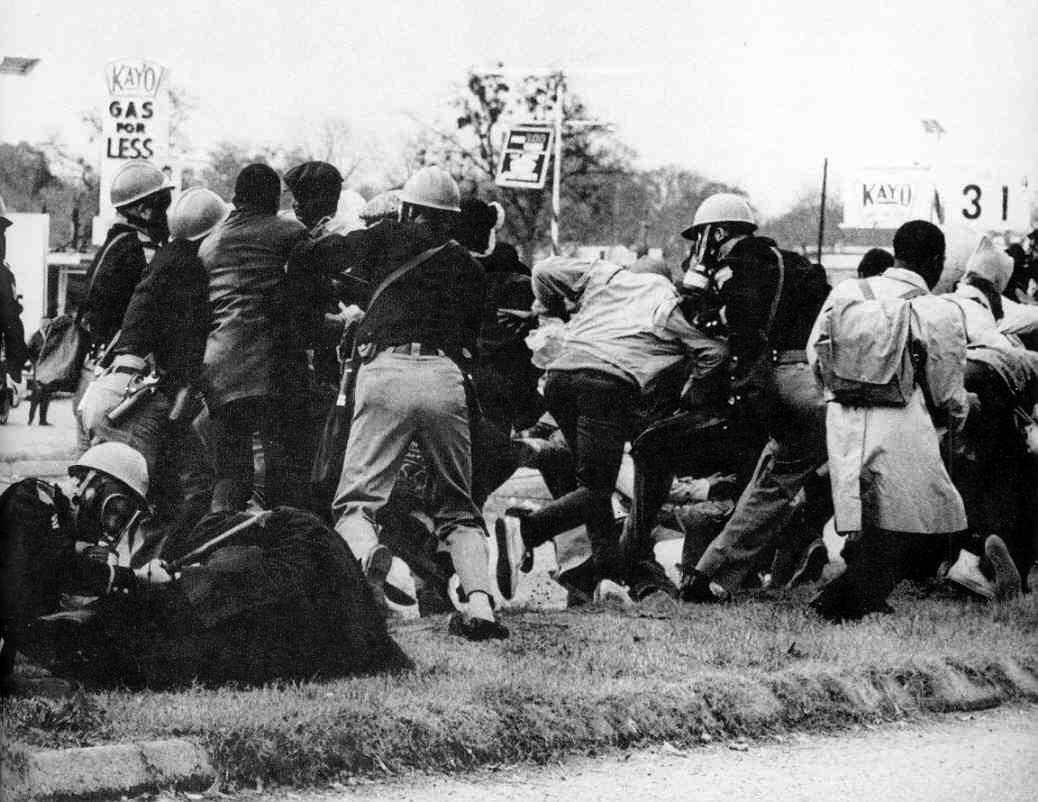
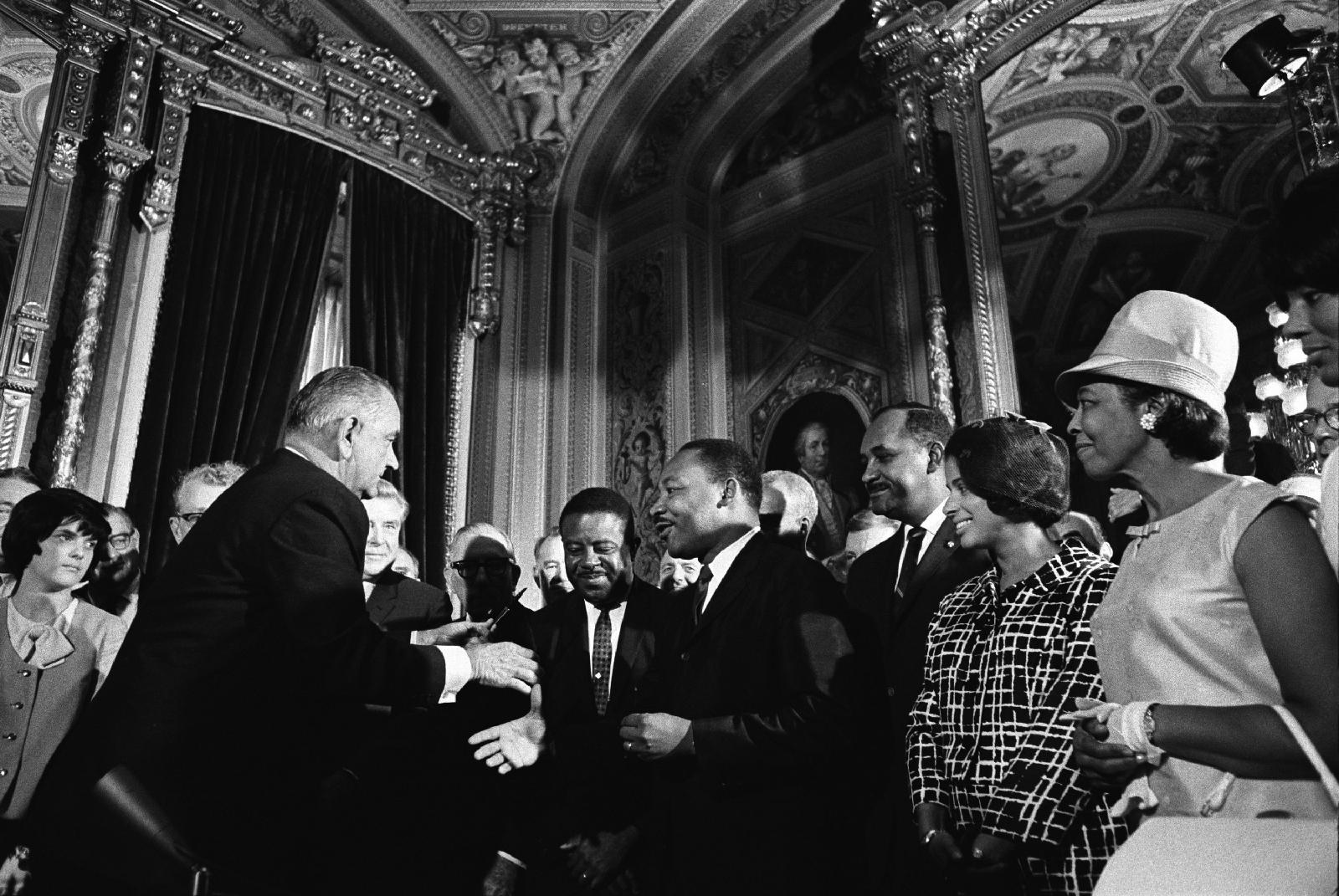
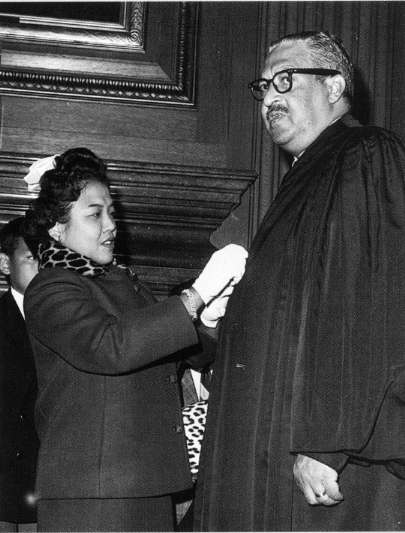
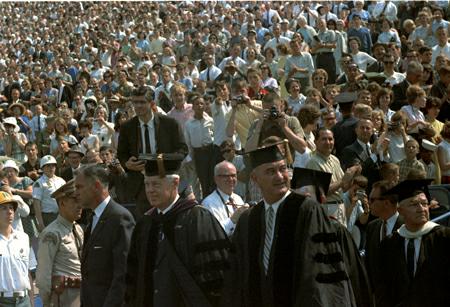
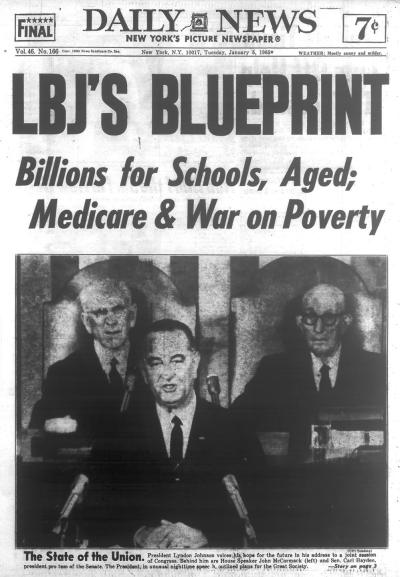
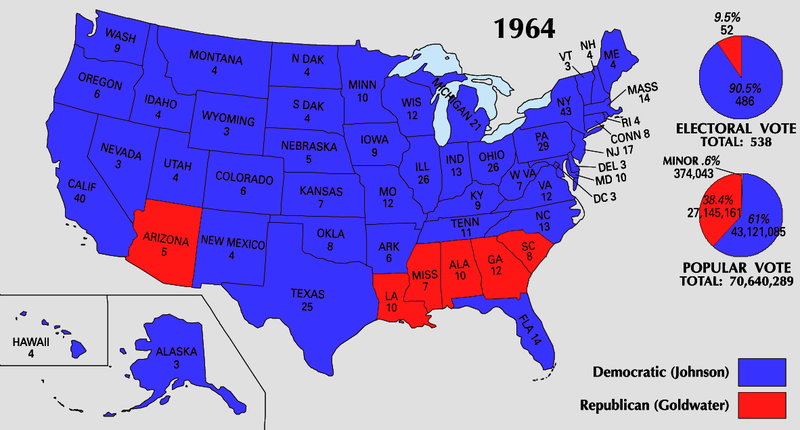

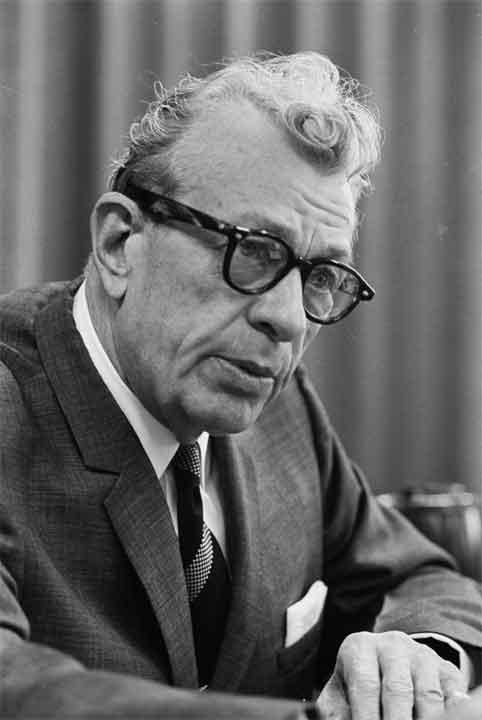
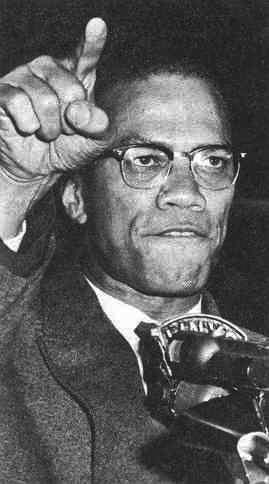
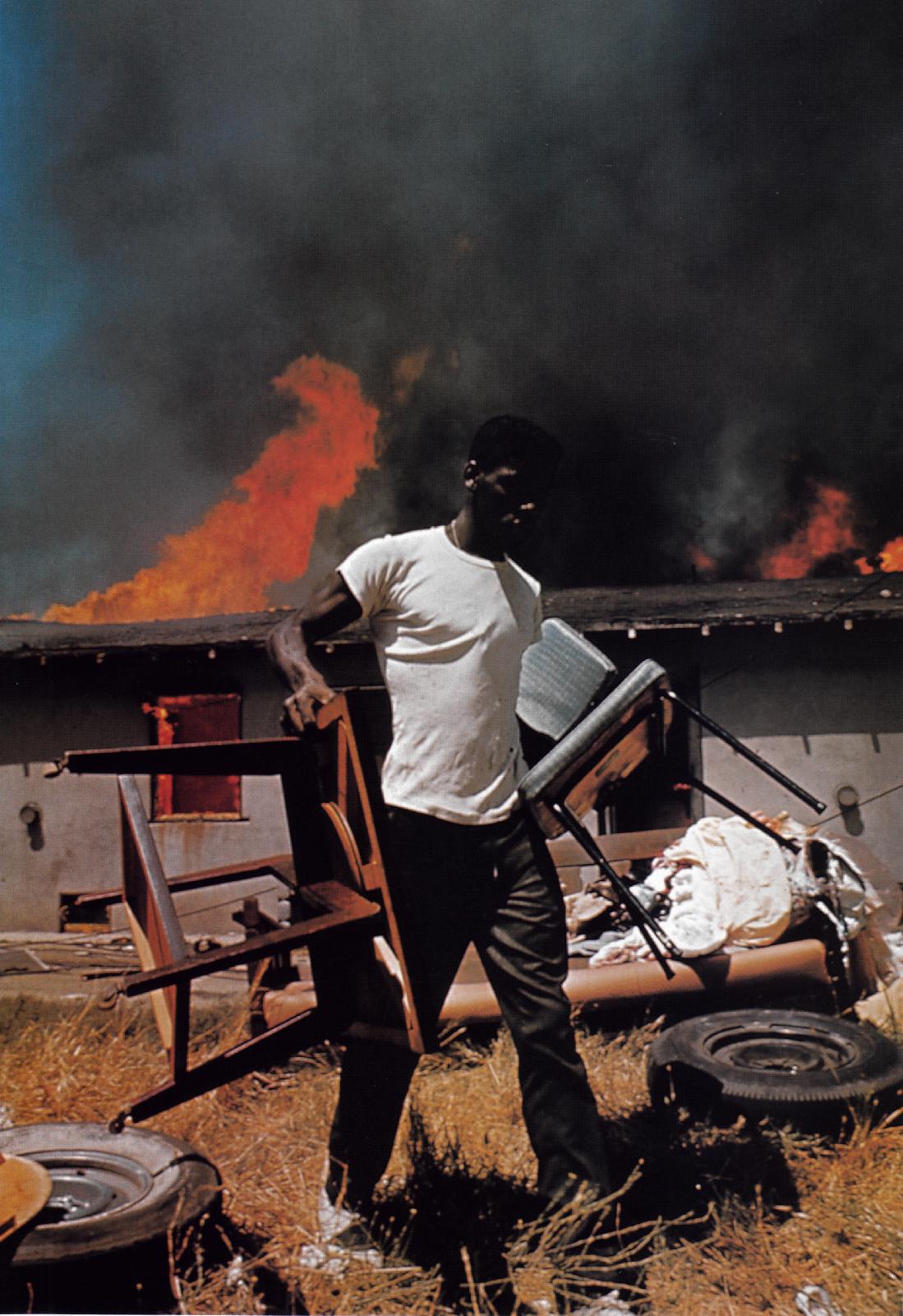
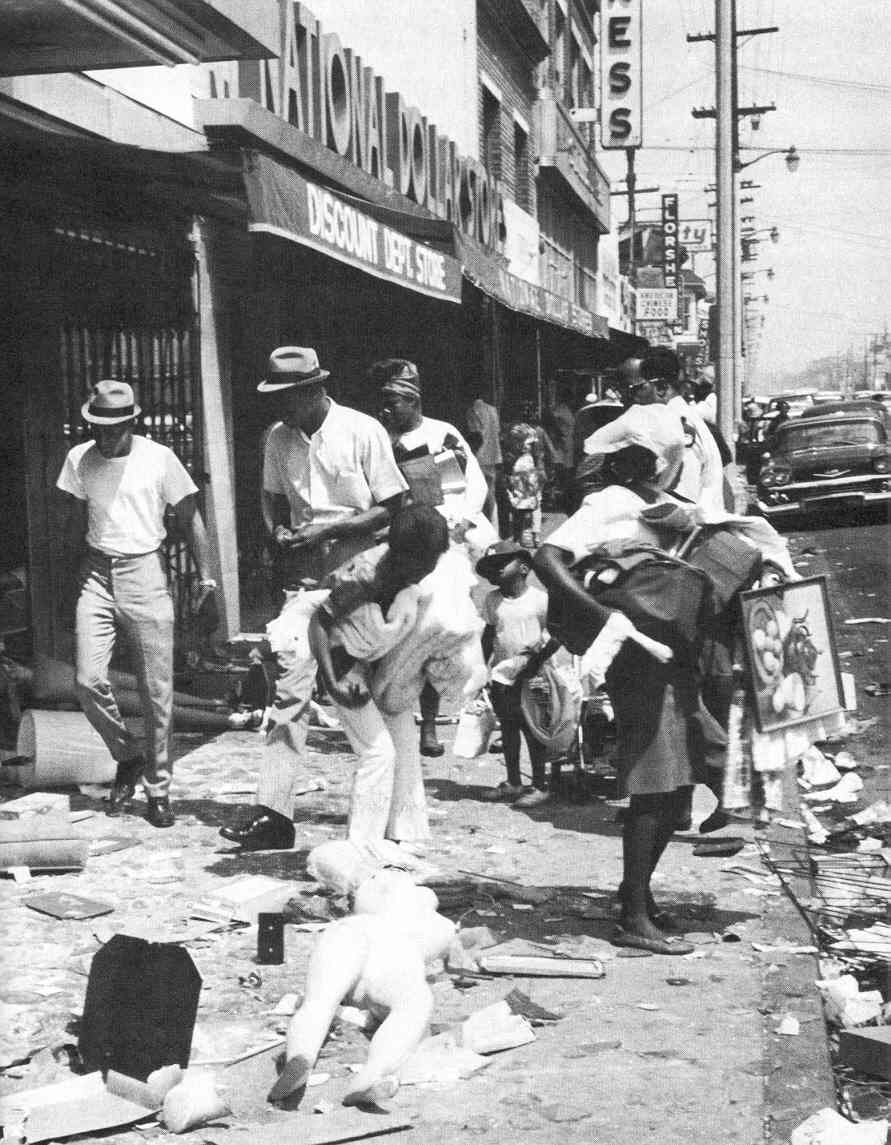
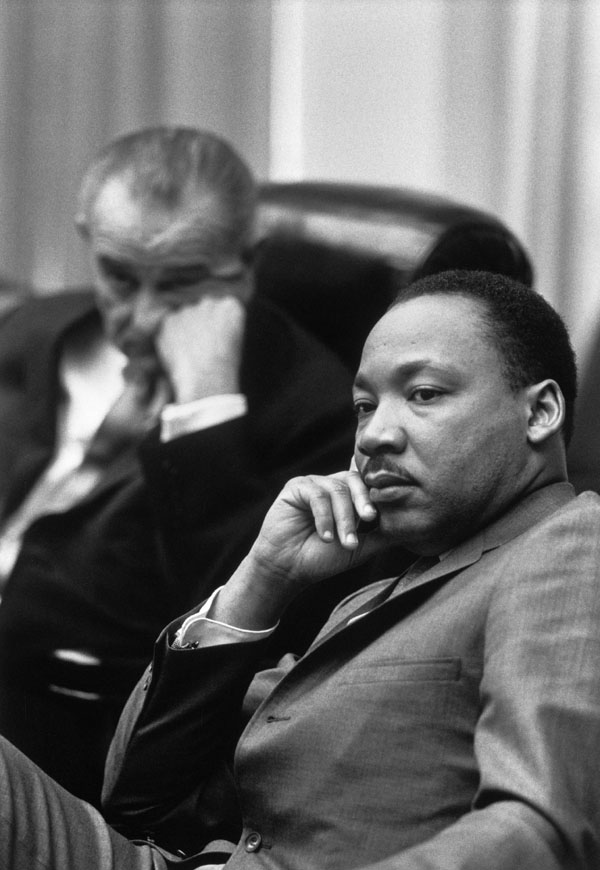
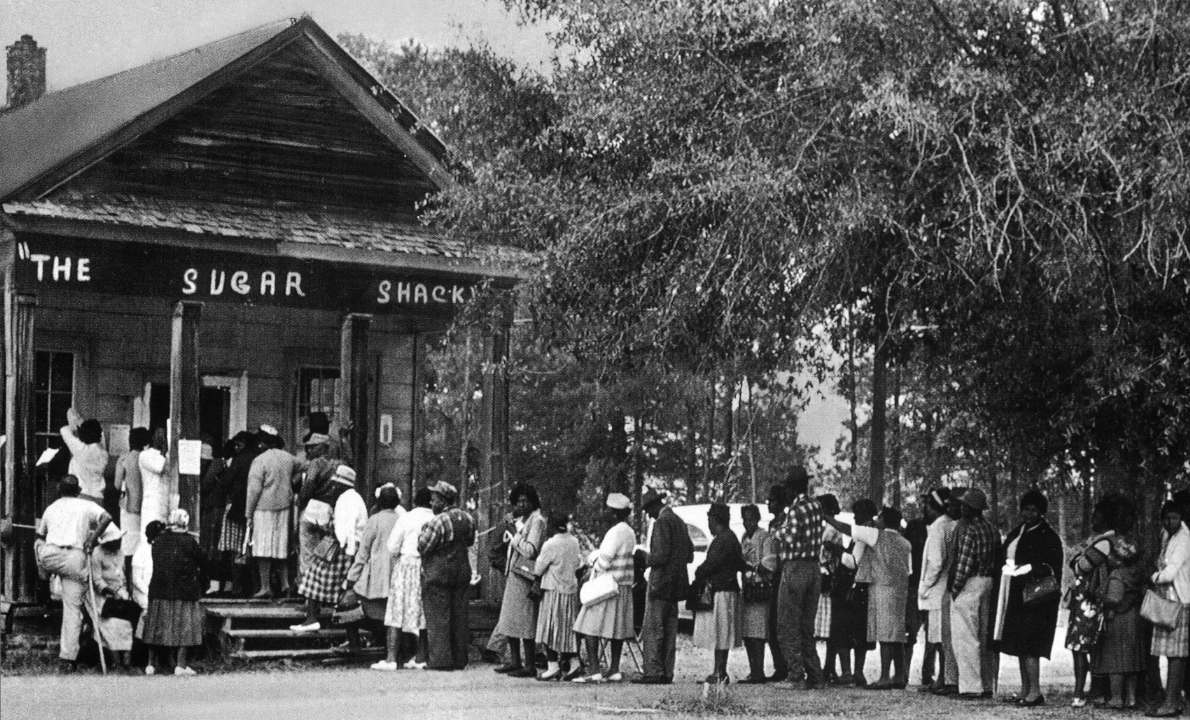
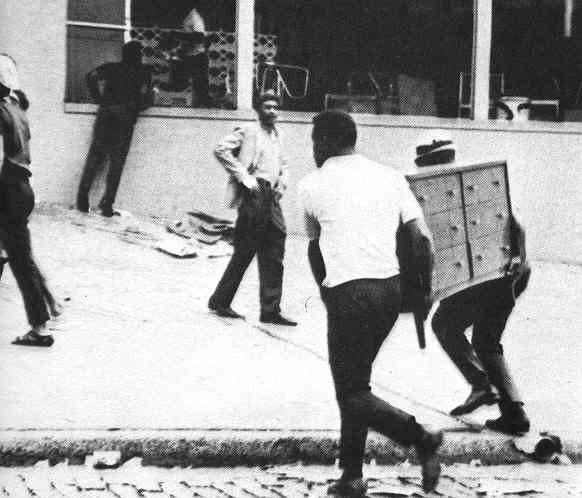
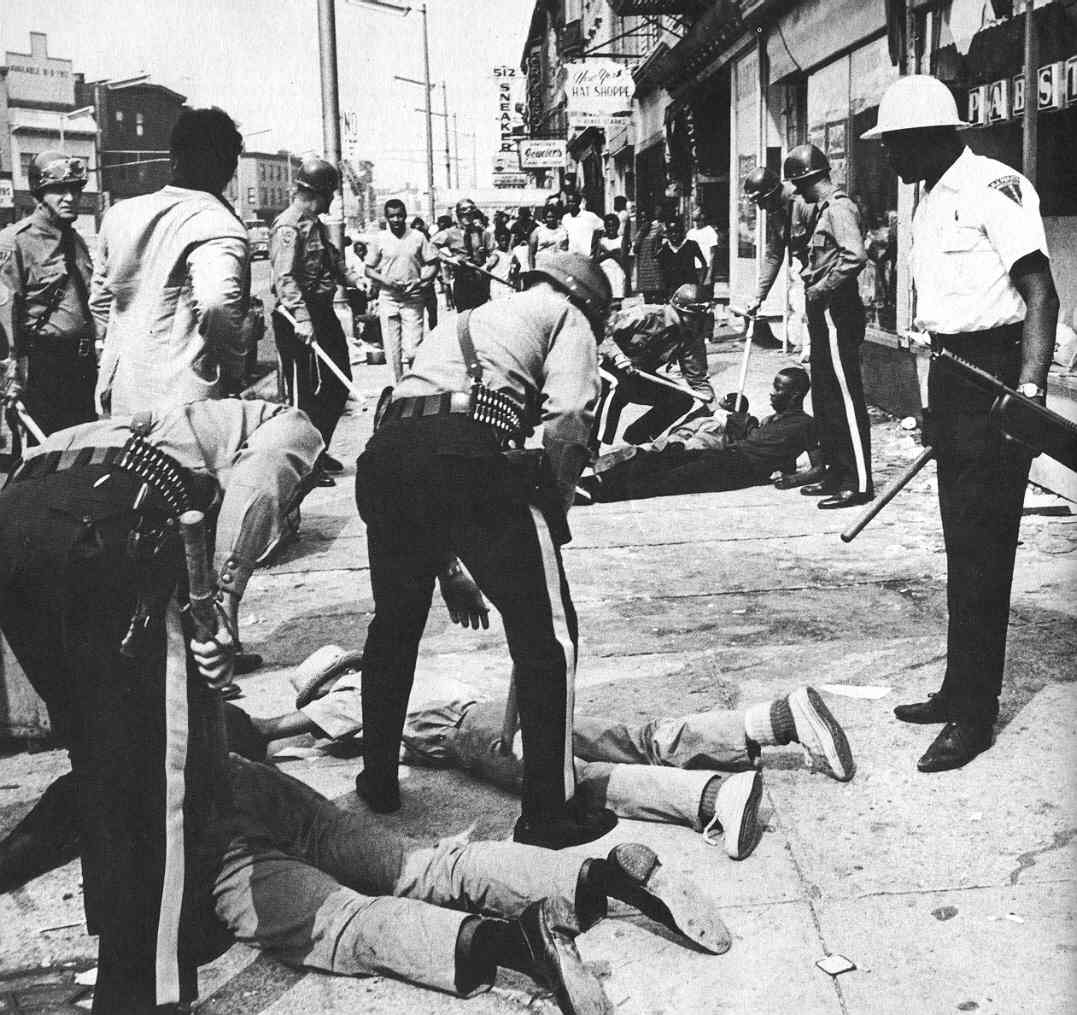
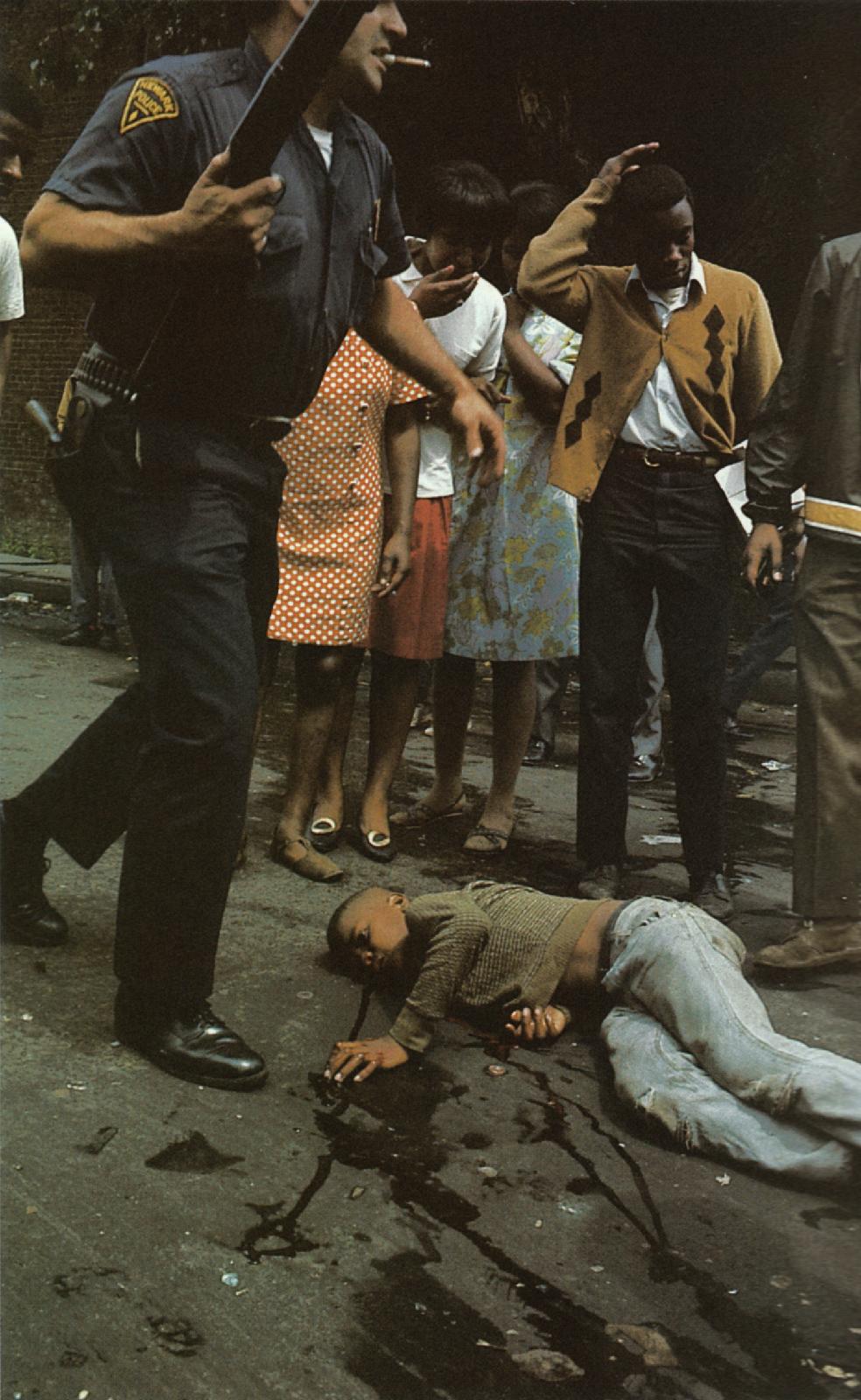
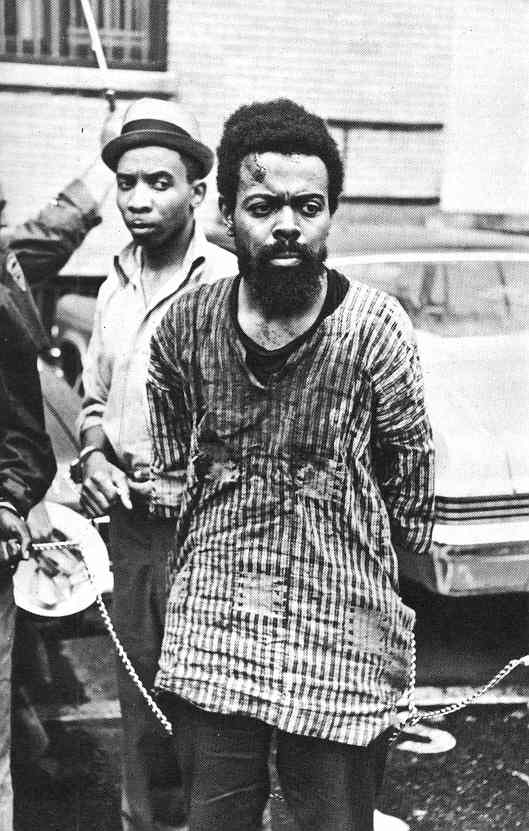
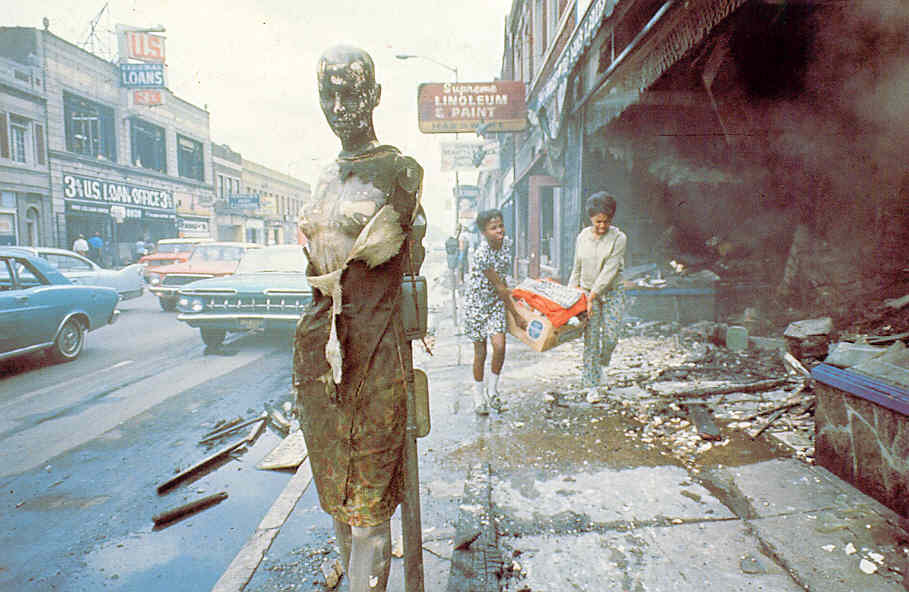
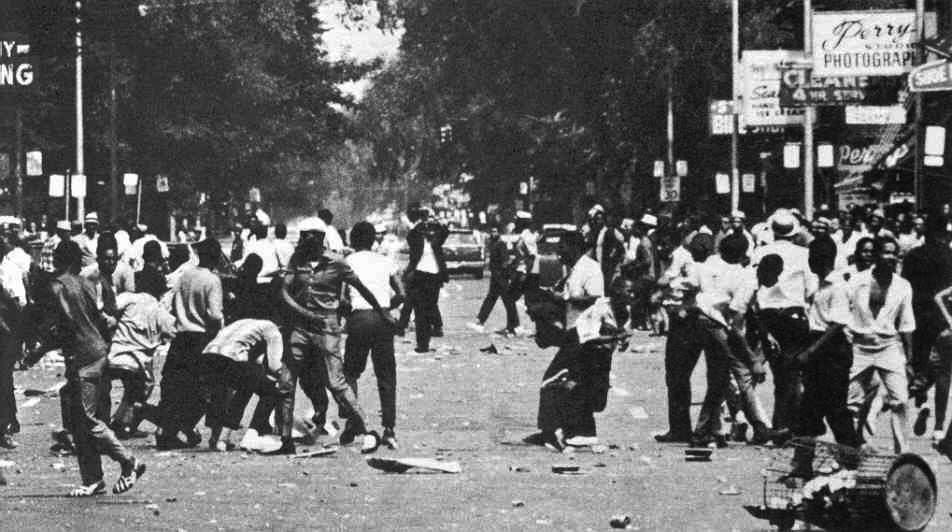

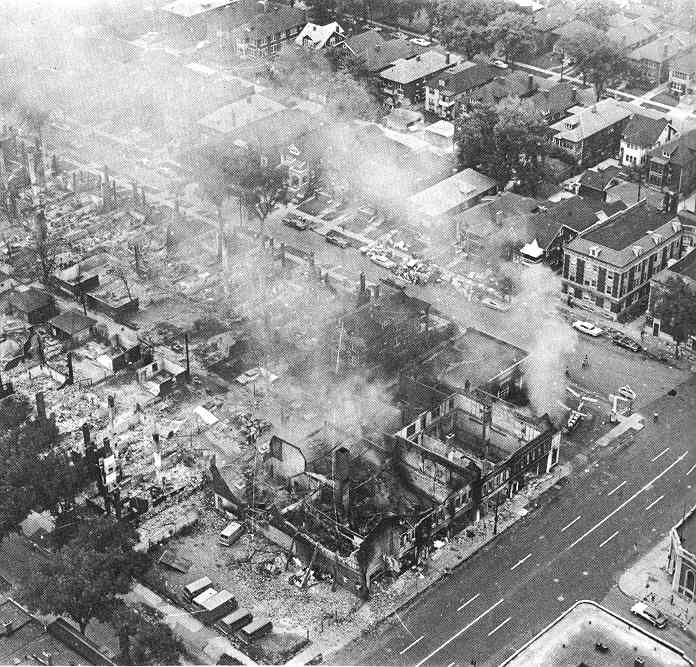
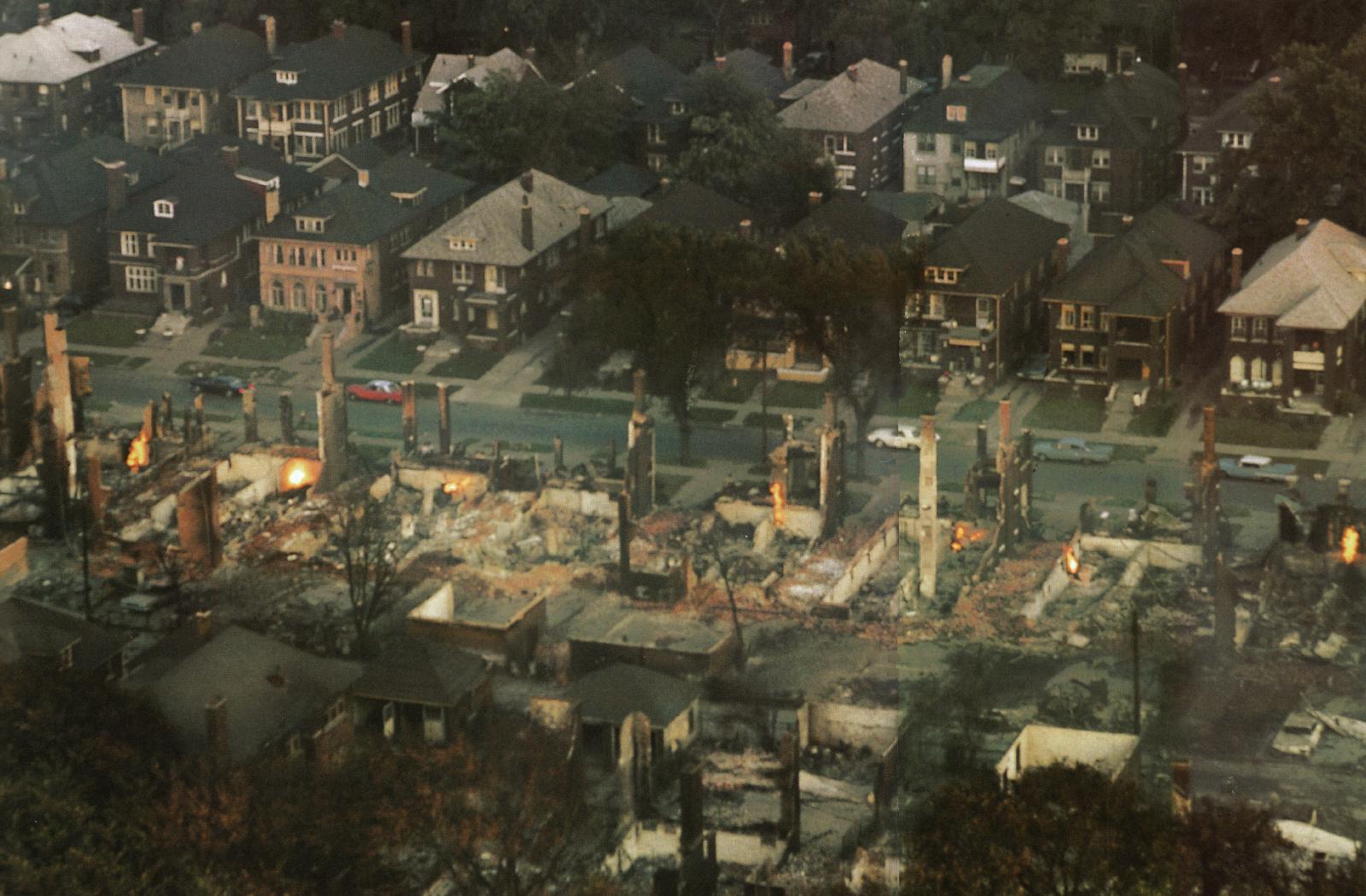
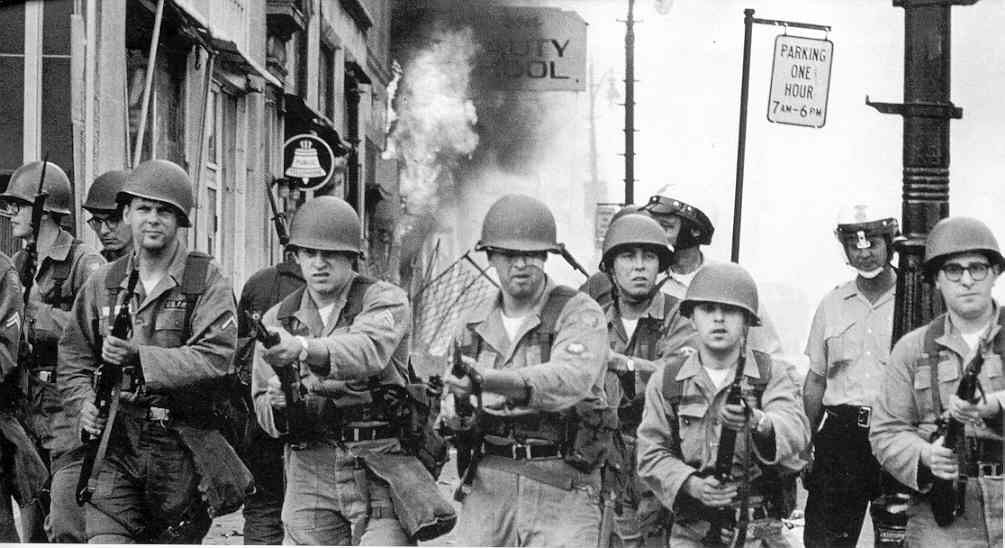
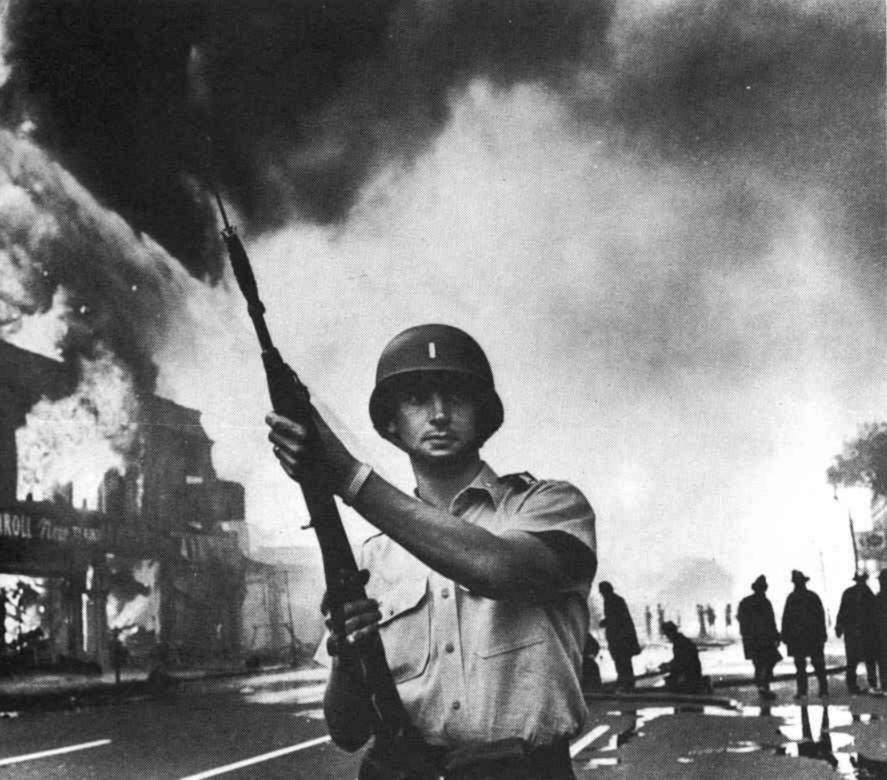
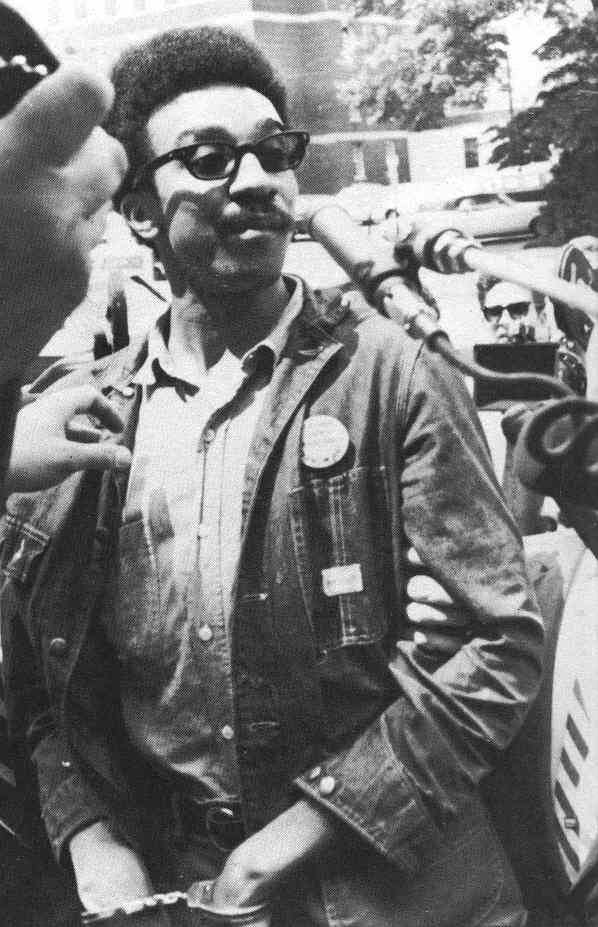
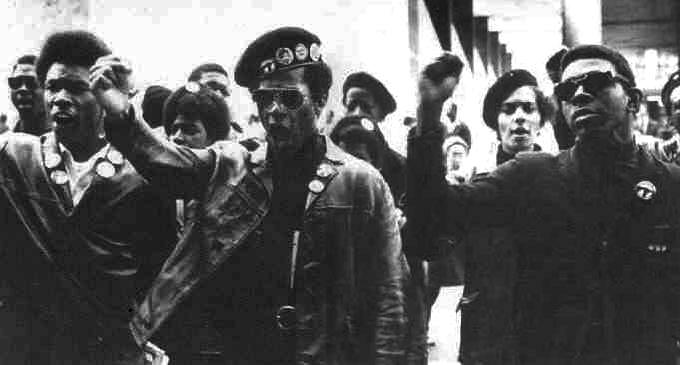
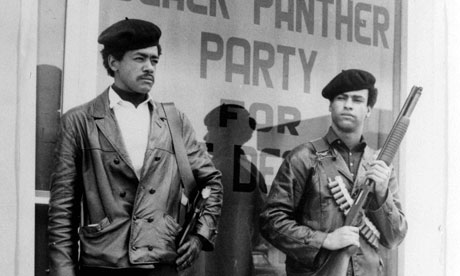
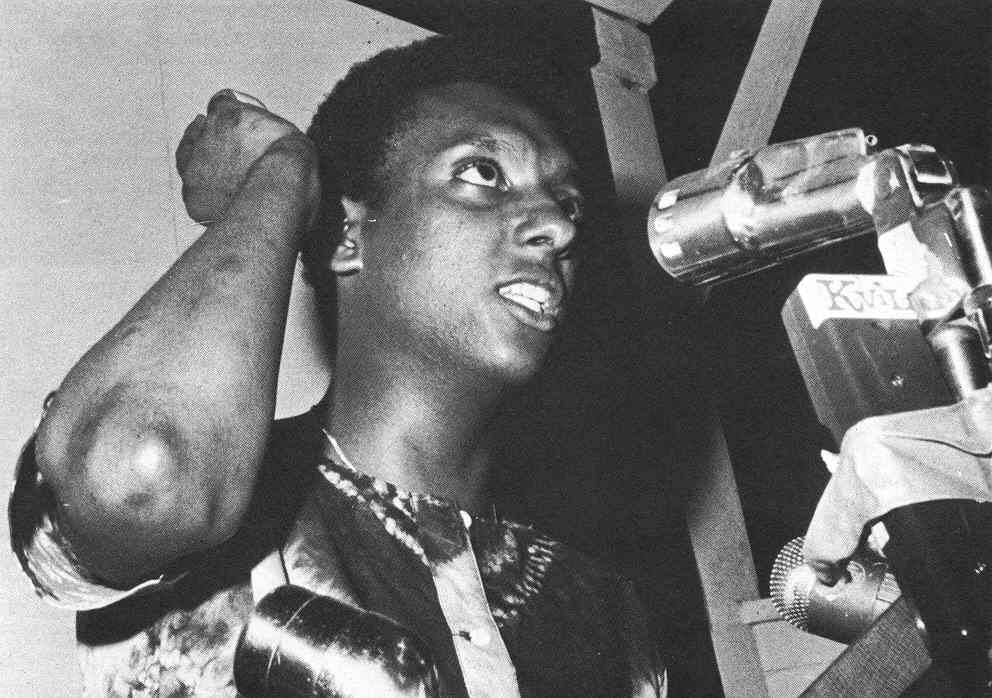
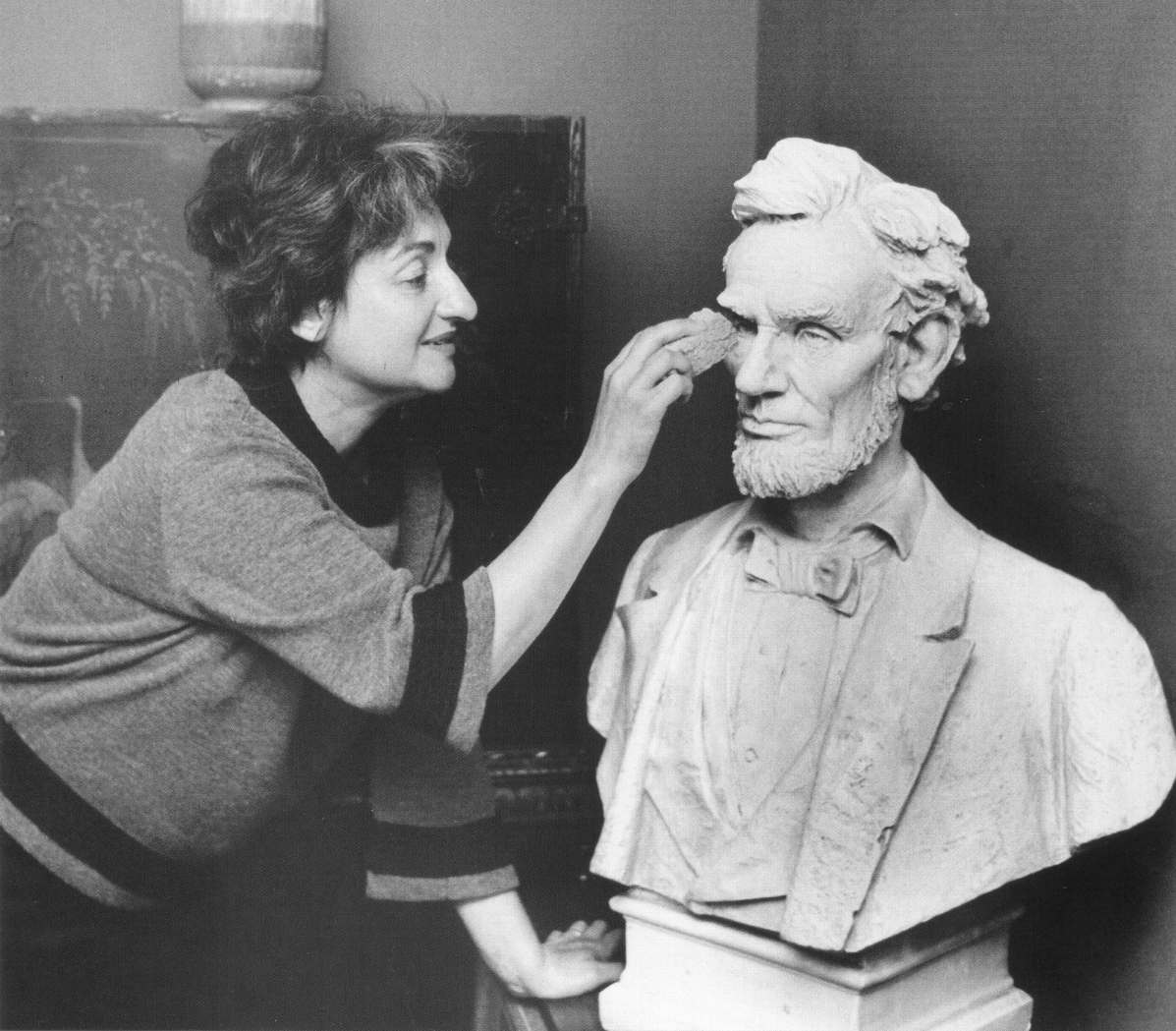
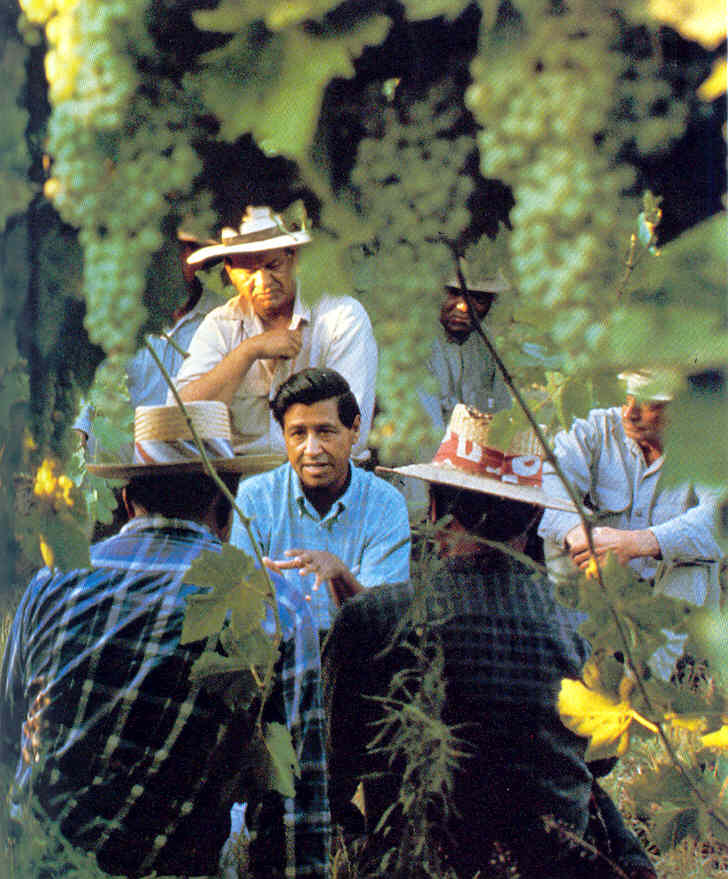
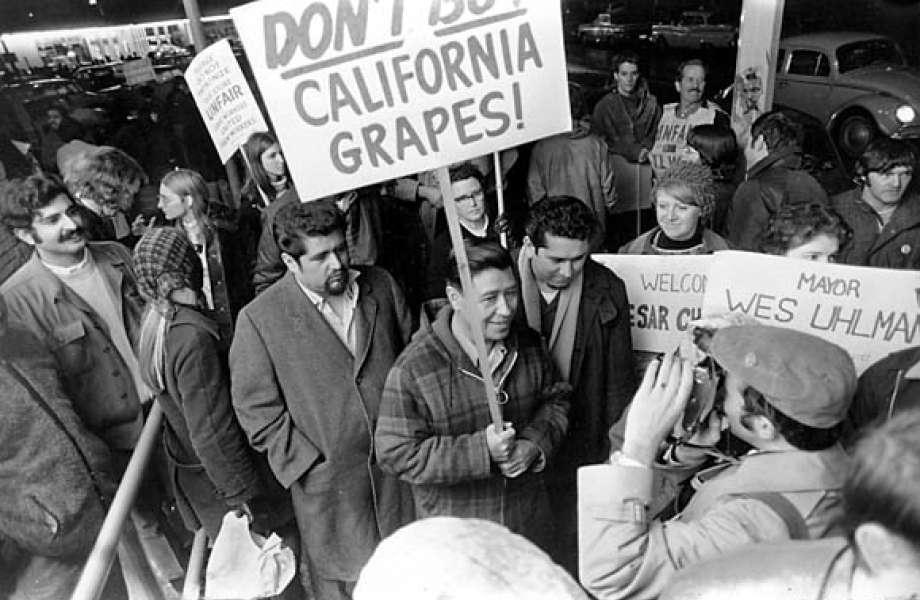
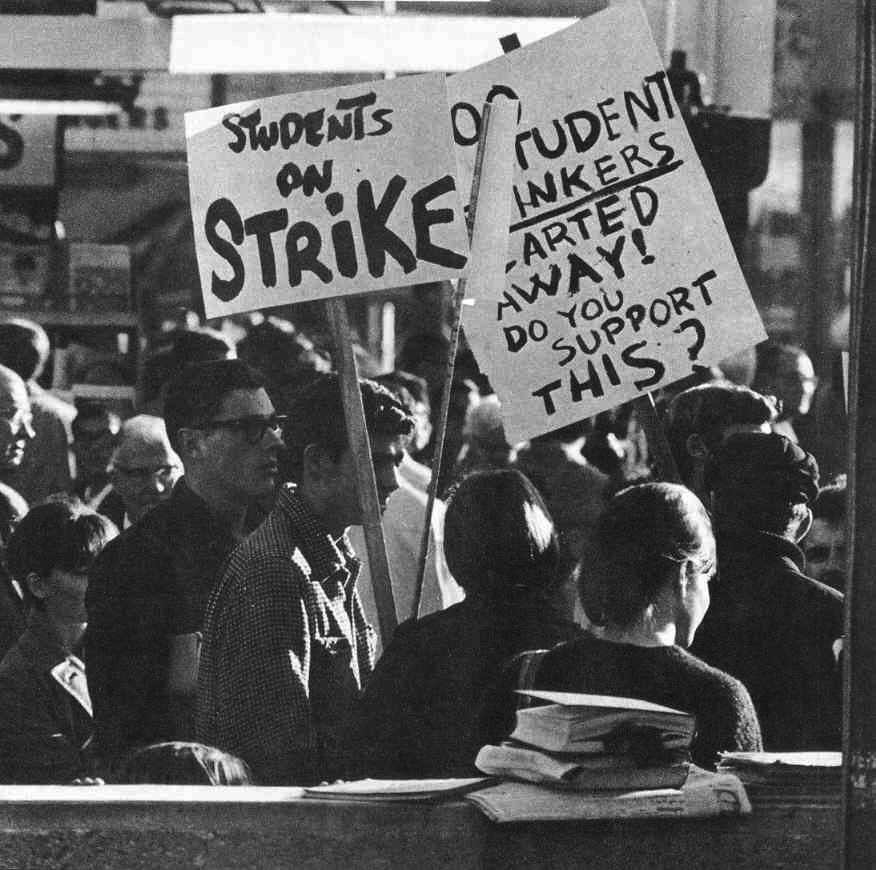
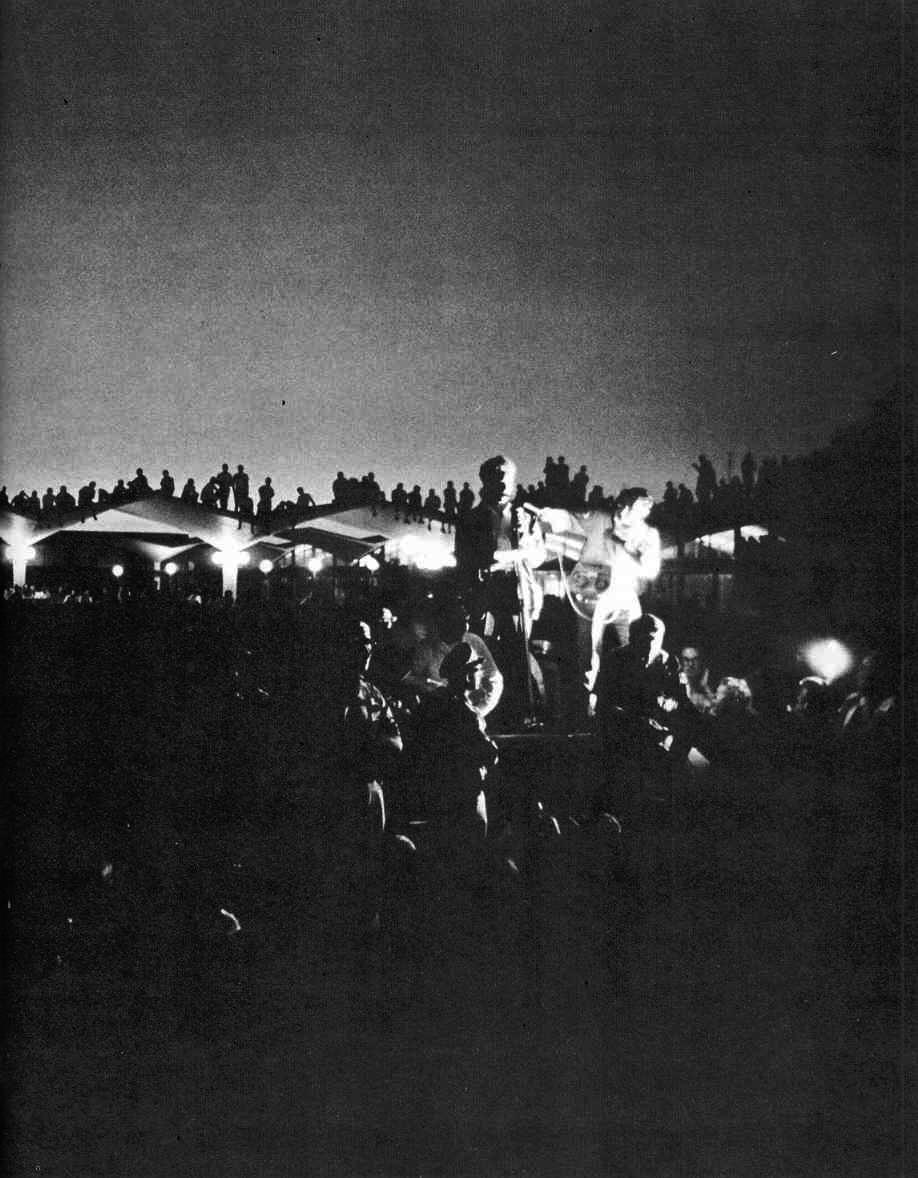

 Miles
H. Hodges
Miles
H. Hodges